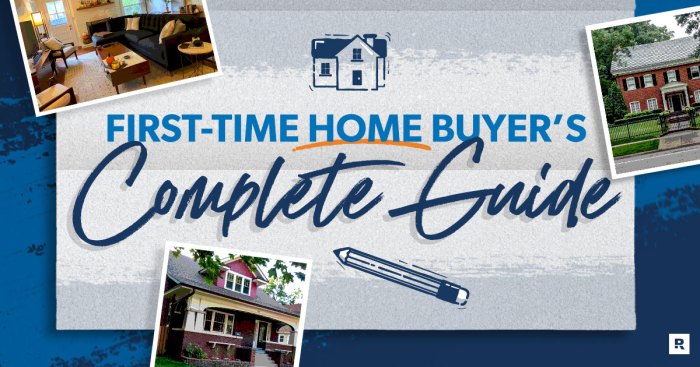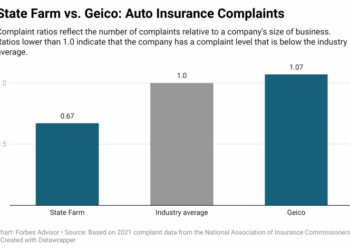Embark on a comprehensive journey through the world of Homeowners Insurance Quote for First-Time Buyers: Complete Guide. Learn about the essentials and intricacies of this important aspect of home ownership.
Delve into the factors to consider, steps to obtain a quote, coverage options, and money-saving tips tailored for first-time buyers in the realm of homeowners insurance.
Introduction to Homeowners Insurance for First-Time Buyers
Homeowners insurance is a crucial financial safety net that provides protection for your home and belongings in case of unforeseen events. For first-time buyers, having homeowners insurance is especially important as it helps safeguard your investment and provides peace of mind.
Types of Coverage Included in Homeowners Insurance
- Property Coverage: This includes coverage for your home and other structures on your property, such as a garage or shed.
- Personal Property Coverage: Protects your belongings inside the home, like furniture, electronics, and clothing.
- Liability Coverage: Offers financial protection in case someone is injured on your property and you are found liable.
Benefits of Having Homeowners Insurance
Homeowners insurance provides financial protection against various risks, such as fire, theft, vandalism, and natural disasters. Without homeowners insurance, you could be left facing significant financial losses that may be difficult to recover from on your own.
Potential Risks Covered by Homeowners Insurance
- Fire Damage: If your home is damaged or destroyed by a fire, homeowners insurance can help cover the cost of repairs or rebuilding.
- Theft: In the unfortunate event of a break-in or theft, homeowners insurance can help replace stolen items and repair any damages.
- Natural Disasters: From hurricanes to earthquakes, homeowners insurance can provide coverage for damage caused by natural disasters, depending on your policy.
Factors to Consider When Getting a Homeowners Insurance Quote
When seeking a homeowners insurance quote, there are several key factors that insurance companies take into account to determine the premium you will pay. Understanding these factors can help you make informed decisions when selecting the right coverage for your home.
Impact of Location on Insurance Premium
The location of your home plays a significant role in determining your insurance premium. Homes located in areas prone to natural disasters such as hurricanes, floods, or wildfires may have higher insurance rates due to the increased risk of damage.
Additionally, crime rates in the neighborhood can also impact the cost of insurance.
Importance of Home’s Age, Construction Materials, and Condition
The age, construction materials, and condition of your home are crucial factors that insurance companies consider when providing a quote. Older homes may have outdated electrical and plumbing systems, which can increase the risk of damage and result in higher premiums.
Homes built with fire-resistant materials like brick or concrete may qualify for lower insurance rates.
Personal Factors Influencing Insurance Quotes
Personal factors such as your credit score and claims history can also influence the insurance quotes you receive. A higher credit score indicates financial responsibility and can lead to lower premiums. On the other hand, a history of multiple insurance claims can result in higher rates as it suggests a higher risk of future claims.
How to Get a Homeowners Insurance Quote as a First-Time Buyer
Obtaining a homeowners insurance quote as a first-time buyer can seem overwhelming, but breaking it down into simple steps can help you navigate the process smoothly.
Steps to Obtain a Homeowners Insurance Quote
- Research Insurance Companies: Start by researching reputable insurance companies in your area that offer homeowners insurance.
- Provide Information: Be prepared to provide details about your home, including its location, size, age, construction materials, and any security features.
- Determine Coverage Needs: Assess the value of your home and belongings to determine the amount of coverage you need in case of damage or loss.
- Request Quotes: Contact multiple insurance companies to request quotes based on the coverage you require.
- Compare Quotes: Review the quotes you receive, comparing coverage options, deductibles, premiums, and any additional features offered by each insurer.
Tips for Accurately Estimating Coverage Needs
- Consider Replacement Costs: Factor in the cost of rebuilding your home and replacing your belongings at current prices.
- Assess Risks: Evaluate potential risks in your area, such as natural disasters or crime rates, to ensure you have adequate coverage.
- Consult with Experts: Seek advice from insurance agents or professionals to help you determine the right coverage for your specific situation.
Reviewing Policy Details and Understanding Coverage Limits
- Read the Fine Print: Carefully review the policy details, including coverage limits, exclusions, and any additional provisions that may affect your coverage.
- Ask Questions: If you're unsure about any aspect of the policy, don't hesitate to ask your insurance agent for clarification.
- Understand Coverage Limits: Ensure you understand the limits of your coverage and consider adding endorsements or riders for extra protection if needed.
Understanding Coverage Options for First-Time Homeowners
When it comes to homeowners insurance, first-time buyers may find themselves overwhelmed by the various coverage options available. Understanding the differences between actual cash value and replacement cost coverage, as well as the types of coverage included in a standard policy, is crucial for protecting your investment in your new home.
Differentiating between Actual Cash Value and Replacement Cost Coverage
- Actual Cash Value: This coverage takes depreciation into account when reimbursing you for a covered loss. This means you may receive less than the original cost of the item.
- Replacement Cost Coverage: With this option, you will be reimbursed for the full cost of replacing the damaged or stolen item, without factoring in depreciation.
Types of Coverage Included in a Standard Homeowners Insurance Policy
- Dwelling Coverage: Protects the structure of your home.
- Personal Property Coverage: Covers your belongings inside the home.
- Liability Coverage: Offers financial protection in case someone is injured on your property.
- Additional Living Expenses: Pays for temporary accommodations if your home becomes uninhabitable due to a covered loss.
Additional Coverage Options
- Flood Insurance: Essential for properties located in flood-prone areas, as standard policies typically do not cover flood damage.
- Personal Property Endorsements: Allow you to increase coverage limits for valuable items like jewelry, art, or electronics.
Situations Requiring Additional Coverage
- If you live in an area prone to natural disasters such as hurricanes, earthquakes, or wildfires, additional coverage may be necessary to protect your home.
- If you own high-value items that exceed the limits of your standard policy, consider adding endorsements or scheduled personal property coverage.
Tips for Saving Money on Homeowners Insurance as a First-Time Buyer
When it comes to homeowners insurance, there are several strategies that first-time buyers can utilize to save money on their premiums without sacrificing coverage. By being proactive and exploring different options, you can find ways to lower your insurance costs while still protecting your investment.
Benefits of Bundling Insurance Policies
One effective way to save money on homeowners insurance is by bundling your policies. Many insurance companies offer discounts to customers who purchase multiple policies from them, such as combining your home and auto insurance. Bundling not only saves you money but also simplifies the insurance process by having all your policies with one provider.
Impact of Home Improvements and Security Systems
Another way to lower your homeowners insurance premiums is by making home improvements or installing security systems. Upgrading your home's roof, electrical system, or plumbing can reduce the risk of damage and potential insurance claims. Additionally, installing security cameras, alarms, or deadbolts can deter theft and vandalism, leading to lower insurance costs.
Regularly Reviewing and Updating Insurance Policies
It's essential to regularly review and update your homeowners insurance policy to ensure you are getting the best coverage at the most cost-effective rate. As your home's value changes or you make improvements, your insurance needs may evolve as well.
By staying informed and working with your insurance provider, you can make adjustments to your policy to save money without compromising coverage.
Concluding Remarks

In conclusion, navigating the realm of homeowners insurance as a first-time buyer can be daunting, but with the right knowledge and guidance, you can make informed decisions to protect your investment and future.
Expert Answers
What factors do insurance companies consider when providing a quote?
Insurance companies consider factors like the location of the home, its age, construction materials, your credit score, and claims history.
How can first-time buyers accurately estimate the coverage they need?
First-time buyers can accurately estimate coverage by considering the value of their home, personal belongings, and potential liabilities.
What are the benefits of bundling insurance policies for potential discounts?
Bundling insurance policies can lead to cost savings by combining multiple policies with the same insurer.
Why is it important to regularly review and update insurance policies?
Regularly reviewing and updating insurance policies ensures that you have adequate coverage and can help in saving costs over time.













